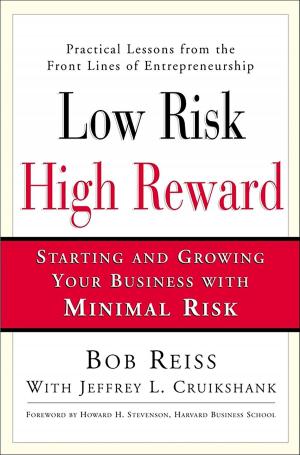Intelligent Enterprise
A Knowledge and Service Based Paradigm for Industr
Business & Finance, Economics, Planning & Forecasting, Management & Leadership, Management| Author: | James Brian Quinn | ISBN: | 9781439105702 |
| Publisher: | Free Press | Publication: | September 14, 1992 |
| Imprint: | Free Press | Language: | English |
| Author: | James Brian Quinn |
| ISBN: | 9781439105702 |
| Publisher: | Free Press |
| Publication: | September 14, 1992 |
| Imprint: | Free Press |
| Language: | English |
In this penetrating study of how knowledge-based services and technology are revolutionizing the economy and every corporate strategy, James Brian Quinn argues that the successful companies of the 90's -- whether in manufacturing or services -- will derive their competitive edge not from ephemerally superior products but from a deep understanding of a few highly developed knowledge and service based "core competencies." Rarely will owning the largest raw materials resource, manufacturing plants, equipment bases, or integrated facilities provide a maintainable competitive edge for major companies. Such physical properties are too easily cloned or bypassed.
From now on, Quinn documents, intelligent enterprises will derive sustainable advantage from knowledge and service based activities that leverage intellectual assets. They will increase value through technological sophistication, better knowledge bases, more creative customer responsiveness, and the unsurpassed management of human and intellectual capital that competitors cannot reproduce. Quinn analyzes the technological and economic forces that make such strategies essential. He shows in detail how to create and leverage knowledge and service based core competencies for maximum focus and effectiveness. Managers, Quinn asserts, must define each value-creating activity as a knowledge based service and determine whether or not they can perform that service -- be it research, design, inventory control, accounting, distribution, or advertising -- better than anyone else in the world.
Using examples from companies such as Merck, Honda, Apple, Boeing, and Wal-Mart, Quinn describes how forward-looking companies can best perform needed analyses and implement strategies around selected core competencies. By eliminating or "outsourcing" less important functions to superior outside vendors, firms become more responsive, decentralized, and lean. They become the "intelligent enterprises" of the 1990s, leveraging human and capital resources much more than other firms. They may also take on radically new organizational forms, become "starburst," "inverted," "infinitely flat," or "spiders' web" configurations. By designing and benchmarking their knowledge and service based activities to be "best in world," managers can obliterate overhead costs, smash bureaucracies, motivate personnel, and create greater value for customers and shareholders alike.
In this penetrating study of how knowledge-based services and technology are revolutionizing the economy and every corporate strategy, James Brian Quinn argues that the successful companies of the 90's -- whether in manufacturing or services -- will derive their competitive edge not from ephemerally superior products but from a deep understanding of a few highly developed knowledge and service based "core competencies." Rarely will owning the largest raw materials resource, manufacturing plants, equipment bases, or integrated facilities provide a maintainable competitive edge for major companies. Such physical properties are too easily cloned or bypassed.
From now on, Quinn documents, intelligent enterprises will derive sustainable advantage from knowledge and service based activities that leverage intellectual assets. They will increase value through technological sophistication, better knowledge bases, more creative customer responsiveness, and the unsurpassed management of human and intellectual capital that competitors cannot reproduce. Quinn analyzes the technological and economic forces that make such strategies essential. He shows in detail how to create and leverage knowledge and service based core competencies for maximum focus and effectiveness. Managers, Quinn asserts, must define each value-creating activity as a knowledge based service and determine whether or not they can perform that service -- be it research, design, inventory control, accounting, distribution, or advertising -- better than anyone else in the world.
Using examples from companies such as Merck, Honda, Apple, Boeing, and Wal-Mart, Quinn describes how forward-looking companies can best perform needed analyses and implement strategies around selected core competencies. By eliminating or "outsourcing" less important functions to superior outside vendors, firms become more responsive, decentralized, and lean. They become the "intelligent enterprises" of the 1990s, leveraging human and capital resources much more than other firms. They may also take on radically new organizational forms, become "starburst," "inverted," "infinitely flat," or "spiders' web" configurations. By designing and benchmarking their knowledge and service based activities to be "best in world," managers can obliterate overhead costs, smash bureaucracies, motivate personnel, and create greater value for customers and shareholders alike.















